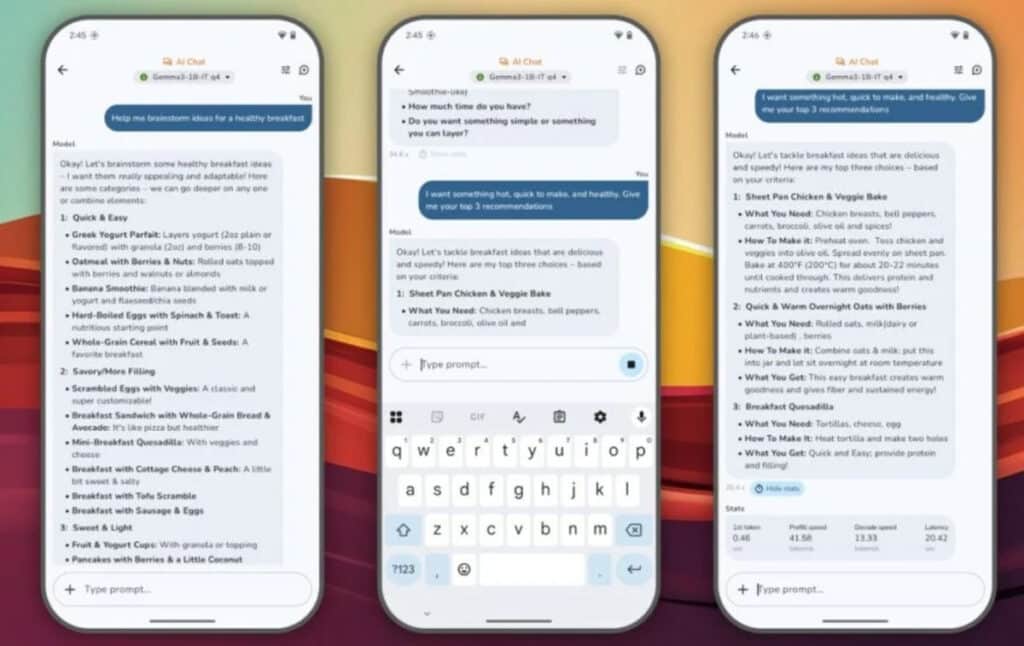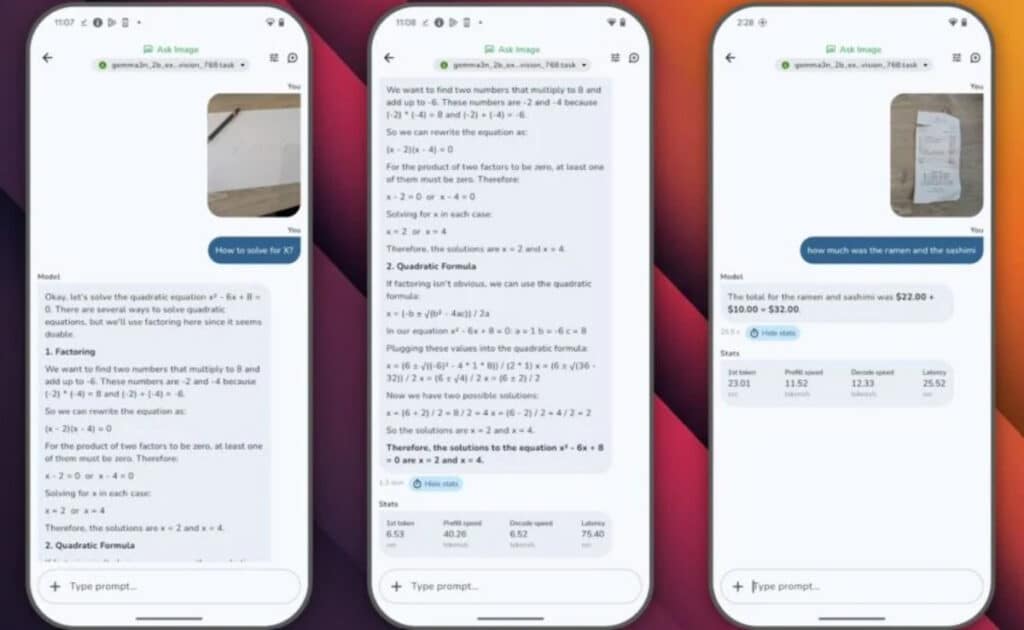Imagine using powerful AI directly on your smartphone, without the need for an internet connection or mobile data. Well, Google is making that a reality with its experimental app, Gemini.
Google’s Game-Changing Offline AI
If you’ve ever tried using advanced AI like ChatGPT or Google’s Gemini, you know they rely heavily on cloud computing. This means that to access these AI models, you need a stable internet connection. All your prompts and requests are sent to the cloud, where powerful servers process the information and send back the results. This reliance on the cloud can be inconvenient if you’re in an area with poor connectivity or if you want to conserve your data usage.
But what if you could use an AI app offline? That’s exactly what Google is testing with its Gemini-based technology in a new app called Google AI Edge Gallery. Available on Android for now, and coming soon for iOS, the app lets you run lightweight AI models directly on your device without needing an internet connection.

The Power of Local AI Models
The AI Edge Gallery app works by using local AI models—smaller, less powerful versions of AI like Gemma. These models are designed to be lightweight enough to run on smartphones or PCs, meaning you don’t need a cloud connection for basic AI functions. The catch? These models may not be as advanced as the cloud-based versions, but they’re still impressive for tasks like image analysis, chatbot-style interactions, and even solving math problems.
I tested the app recently, and one of the first things I noticed was how easy it was to interact with. I could ask the AI for healthy breakfast ideas, and it offered me several suggestions, all offline. The models, like Gemma, also help with more complex tasks. For example, I was able to use one to scan a receipt, and it extracted key information without a hitch.
How Does It Work?
The Google AI Edge Gallery app is available through GitHub, not the Google Play Store, meaning you’ll need to download an .apk file directly to install it. Once installed, you can access a range of AI models that perform various functions. For example, some models can help you with general knowledge questions, while others focus on practical tasks like identifying objects in photos or reading handwritten notes.
Google’s app doesn’t just stop at text and images. Some versions of the Gemma models can even recognize and solve handwritten math problems. Imagine having that kind of support in your pocket—whether you’re at home or traveling without Wi-Fi.

Performance Depends on Your Device
Of course, performance will depend on your smartphone’s capabilities and the size of the model you’re using. On a more powerful device, you’ll see faster response times and smoother performance, but even on mid-range phones, the app works surprisingly well. For iPhone users, Google has confirmed that an iOS version is in the works, though it’s still in development.
In many ways, this app feels like a glimpse into the future of AI, where powerful tools can be used without the constraints of internet connectivity. Offline AI opens up a world of possibilities, especially in regions with limited access to the internet or for those who want to save on data usage.
What Does This Mean for the Future?
By moving AI directly onto devices, Google is pushing the envelope on what’s possible with artificial intelligence. While there are still limitations in the complexity of tasks these models can perform offline, the potential for AI that works without the internet is massive. Imagine accessing AI-powered support in remote areas or during a long flight with no Wi-Fi. This is just the beginning, and it could reshape how we interact with technology moving forward.
Google’s experiment with offline AI is an exciting step forward for local machine learning and could be the precursor to even more innovative uses of artificial intelligence in the near future. As the world becomes more dependent on mobile tech, having powerful tools like this at our fingertips—without needing constant internet access—feels like the perfect evolution of AI.





